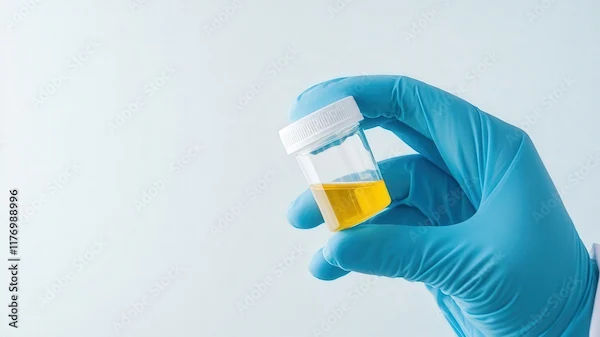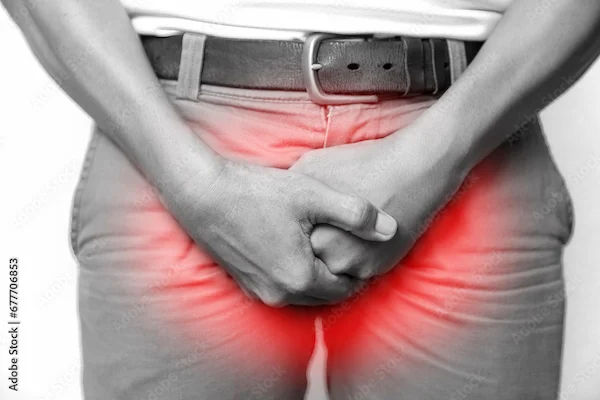How to Reduce Urine Microalbumin: Diagnosis, Lifestyle & More
Learn effective strategies to reduce urine microalbumin levels through lifestyle changes, medical treatments, and preventive measures. Discover the causes of elevated microalbumin levels, diagnosis methods and potential complications.

Written by
Last updated on 13th Jan, 2026
Microalbumin refers to small amounts of protein in urine. It suggests that the kidneys are not able to filter properly, indicating the early signs of kidney damage. This condition mostly affects people with diabetes, hypertension, or other chronic diseases, and if left untreated, it can lead to serious health complications. However, early detection and proper management can help slow its progression and protect kidney function.
Keep reading this article to know the causes, diagnosis, treatment, and prevention of urine microalbumin.
Causes of Elevated Microalbumin Levels in Urine
Microalbuminuria occurs when small amounts of albumin leak into the urine. In such cases, the presence of albumin in urine ranges from 30 to 300 mg per day. Here is how this condition develops:
The kidneys contain tiny filters called glomeruli that keep protein in the blood.
Damaged filters let protein leak into urine, resulting in the appearance of microalbumin in urine.
High blood pressure puts strain on kidney filters, leading to leakage.
High blood sugar damages kidney tissue over time, and the body cannot repair the damaged filters easily.
Apart from kidney damage, several other medical conditions can cause elevated microalbumin levels:
Diabetes mellitus (Type 1 and 2)
Chronic high blood pressure or hypertension
Obesity and metabolic syndrome
Autoimmune diseases (lupus, rheumatoid arthritis)
Heart disease and other cardiovascular conditions
Severe infections and chronic inflammation
Pregnancy complications such as preeclampsia
Certain medications - Nonsteroidal Anti-Inflammatory Drugs (NSAIDs), Angiotensin-converting Enzyme (ACE) inhibitors
Genetic kidney disorders and hereditary nephropathy
Smoking and excessive alcohol consumption
Detection and Diagnosis of Urine Microalbumin
Microalbumin testing involves specific urine collection methods. These tests provide valuable information about kidney function and protein excretion patterns. Labs measure protein levels using these standardised procedures:
Random spot urine test
24-hour urine collection
Albumin-to-creatinine ratio
Regular monitoring helps track kidney function changes and adjust treatment plans accordingly. Additionally:
Healthcare providers establish monitoring schedules based on individual risk factors.
High-risk patients should take microalbumin testing at least twice per year.
Test results guide medication adjustments and lifestyle modification recommendations.
Consistent monitoring helps evaluate treatment effectiveness and disease progression.
Lifestyle Modifications for Urine Microalbumin
Making specific lifestyle changes can help reduce microalbumin levels and protect kidney function. In this regard, a balanced diet plays a vital role. Individuals need to focus on whole foods and actively limit processed items.
Proper nutrition helps reduce protein excretion. Key diet changes to follow for managing urine microalbumin are:
Low-sodium diet
Moderate protein intake
Increased fibre consumption
Limited processed foods
Adequate hydration
Additionally, exercise improves kidney function and overall health. The following regular physical activities can help effectively control microalbumin levels:
Moderate aerobic exercise
Regular walking
Strength training
Improved circulation
Better blood pressure control
Additionally, stress affects kidney function and protein excretion. Thus, managing stress helps maintain healthy microalbumin levels. Below are a few effective techniques for stress management:
Meditation practice
Deep breathing exercises
Regular sleep schedule
Yoga or tai chi
Relaxation techniques
Medical Treatments and Therapies for Urine Microalbumin
Various medications help reduce microalbumin levels. Doctors prescribe treatments based on individual needs. Here are some common medications that are prescribed for elevated urine microalbumin:
ACE inhibitors (angiotensin-converting enzyme inhibitors) - Reduce protein excretion
ARBs (Angiotensin receptor blockers) - Protects kidney function
Blood pressure medications - Helps control kidney filtration
Diabetes medications - Regulates blood sugar
Combination therapy approaches
Doctors adjust the doses of these medications based on response.
Now, blood pressure affects kidney filtration directly and high blood sugar damages kidney tissues as well. That’s why controlling these aspects is crucial to maintaining optimum microalbumin levels. Home monitoring helps patients to control these conditions effectively.
Below are a few suggested ways:
Target blood pressure and blood sugar ranges and maintain that range
Glycemic control strategies
Regular medication adherence
Exercising to improve blood sugar and blood pressure naturally
Regular doctor visits to track progress
Keeping detailed records
Stress management to help with stabilisation
Consult Top Urologist
Alternative and Complementary Approaches for Reducing Urine Microalbumin
Some herbal supplements support kidney function naturally. However, patients need a doctor's consultation before starting these supplements. Here’s why:
Proper dosage and quality matter in supplement selection.
Regular monitoring is needed to track benefits and side effects.
Some herbs might interact with prescription medications.
As a result, natural supplements require a careful introduction to the treatment schedule. Patients need to report all supplements to their healthcare team for safe consumption.
Some useful natural supplements for this condition are:
Dandelion root - Supports kidney filtration
Turmeric - Reduces inflammation
Ginger - Improves circulation
Green tea - Provides antioxidants
Nettle leaf - Aids kidney function
Traditional home remedies might enhance the effectiveness of medical treatments:
Apple cider vinegar may help kidney function.
Lemon water supports natural detoxification.
Cranberry juice prevents urinary infections.
Parsley tea aids in kidney cleansing.
The person should maintain proper hydration.
Regular exercise supports remedy effectiveness.
Sleep quality affects kidney function. Thus, ensuring adequate sleep is a must.
Stress reduction techniques enhance results.
Temperature therapy improves circulation.
Some other recommended tips are:
Morning lemon water ritual
Apple cider vinegar dilution
Herbal tea combinations
Proper hydration timing
Natural food remedies
Potential Complications of Urine Microalbumin if Left Untreated
Following are the potential complications that can occur if urine microalbumin is left untreated:
Chronic kidney disease develops gradually from untreated microalbuminuria.
As the kidneys lose filtering capacity over time, protein leakage increases progressively.
Blood pressure becomes harder to control.
Medication needs increase significantly.
The patient requires more frequent monitoring.
Kidney function decreases steadily.
Dialysis might become necessary.
Transplant needs may arise.
Additionally, untreated microalbuminuria affects multiple body systems beyond the kidneys:
Heart health deteriorates gradually.
Blood vessels become damaged.
Energy levels decrease significantly.
Sleep patterns change noticeably
Mental health issues may also develop.
Below are a few major conditions that may develop as a result of untreated microalbumin:
Increased risk of cardiovascular disease and heart attacks
Higher likelihood of developing high blood pressure
Greater chance of fluid retention and swelling in legs and feet
Weaker bone strength due to mineral imbalances
Increased risk of anaemia and fatigue
Compromised immune system function leads to frequent infections
Higher risk of nerve damage, especially in diabetic patients
Thus, early intervention is key to reducing the chances of complications in such cases.
Prevention Strategies for Urine Microalbumin
Patients should consider the following screening tests to keep their urine microalbumin levels under check:
Quarterly kidney function tests
Monthly blood pressure checks
Regular blood sugar monitoring
Annual physical examinations
Bi-annual cardiovascular screening
Healthcare providers develop these individualised prevention plans based on specific risk factors and health conditions:
Customised dietary recommendations based on medical history
Medication schedules tailored to individual needs
Specific exercise plans that consider physical limitations
Regular review and adjustment of treatment routine
Blood pressure and blood sugar targets
Lifestyle modification plans
Clear communication plans between the patient and the healthcare team
Conclusion
Managing urine microalbumin levels requires a comprehensive approach combining lifestyle modifications, medical treatment, and regular monitoring. Success in reducing microalbumin levels depends on patient commitment to treatment plans and lifestyle changes. Early intervention and consistent monitoring provide the best outcomes for preventing kidney disease progression.
Healthcare providers can play a crucial role in developing personalised treatment strategies and monitoring progress. With proper management, patients can significantly improve their kidney health and overall well-being. However, being consistent with the screening tests, dietary modifications, and exercise routines are crucial for favourable long-term outcomes.
Consult Top Urologist
Consult Top Urologist

Dr. Ramesh H
Urologist
16 Years • MBBS, MS , Mch( Urology)
Bengaluru
Apollo Clinic, JP nagar, Bengaluru

Dr. Sudhakar G V
Urologist
25 Years • MBBS, MS(Gen.Surgery), DNB Urology
Bengaluru
Apollo Clinic, JP nagar, Bengaluru

Dr. Pavan Kumar S K
Urologist
11 Years • MBBS, MS , Mch( Urology) DNB (Urology)
Bengaluru
Apollo Clinic, JP nagar, Bengaluru

Dr. Prabir Basu
Urologist
19 Years • MBBS, MS General Surgery, DNB Genito-Urinary Surgery
Jodhpur Park
Dr. Prabir Basu urology clinic, Jodhpur Park
(200+ Patients)

Dr Anupam Sharma
Urologist
18 Years • MBBS, MS(Gen Surgery), DNB (Urology)
Delhi
Apollo Hospitals Indraprastha, Delhi
(25+ Patients)
Consult Top Urologist

Dr. Ramesh H
Urologist
16 Years • MBBS, MS , Mch( Urology)
Bengaluru
Apollo Clinic, JP nagar, Bengaluru

Dr. Sudhakar G V
Urologist
25 Years • MBBS, MS(Gen.Surgery), DNB Urology
Bengaluru
Apollo Clinic, JP nagar, Bengaluru

Dr. Pavan Kumar S K
Urologist
11 Years • MBBS, MS , Mch( Urology) DNB (Urology)
Bengaluru
Apollo Clinic, JP nagar, Bengaluru

Dr. Prabir Basu
Urologist
19 Years • MBBS, MS General Surgery, DNB Genito-Urinary Surgery
Jodhpur Park
Dr. Prabir Basu urology clinic, Jodhpur Park
(200+ Patients)

Dr Anupam Sharma
Urologist
18 Years • MBBS, MS(Gen Surgery), DNB (Urology)
Delhi
Apollo Hospitals Indraprastha, Delhi
(25+ Patients)

.webp)


